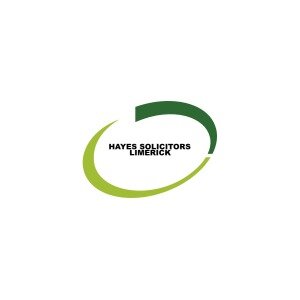Best Adoption Lawyers in Limerick
Share your needs with us, get contacted by law firms.
Free. Takes 2 min.
Free Guide to Hiring a Family Lawyer
List of the best lawyers in Limerick, Ireland
About Adoption Law in Limerick, Ireland
Adoption in Limerick, Ireland is a legal process that establishes a permanent parent-child relationship between individuals who are not biologically related. This process allows the adoptive parents to become the child’s legal guardians, with all the rights and responsibilities that biological parents possess. The primary legislation governing adoption in Ireland is the Adoption Act 2010, along with various amendments and guidelines by the Adoption Authority of Ireland. In Limerick, as throughout Ireland, adoptions must be arranged or approved by authorised bodies to ensure the protection of the child’s welfare and rights.
Why You May Need a Lawyer
The adoption process can be intricate and involves strict legal requirements. Many people in Limerick seek legal advice for the following reasons:
- Completing complex adoption applications and paperwork
- Navigating the legal eligibility criteria for prospective adopters
- Understanding their rights and obligations during the assessment process
- Addressing situations involving relative or step-parent adoptions
- Handling international or intercountry adoptions
- Responding to contested adoptions or birth parent consent issues
- Ensuring proper legal representation at any required court hearings
Legal advice can help prospective adopters avoid unnecessary delays or complications, making the process as smooth and stress-free as possible.
Local Laws Overview
The adoption process in Limerick must comply with national legislation, primarily the Adoption Act 2010. Some key legal aspects include:
- Eligibility - Prospective adoptive parents must be at least 21 years old. Couples can adopt together, but single individuals can also apply in certain circumstances.
- Assessment - Every applicant undergoes an assessment process conducted by the Child and Family Agency (Tusla) to determine their suitability to adopt.
- Matching - Once approved, prospective adopters are matched with a child, with the child’s welfare as the paramount consideration.
- Consent - The birth parents’ consent is generally required unless the court decides otherwise for the child’s best interests.
- Types of Adoption - These include domestic adoption, intercountry adoption, step-parent adoption, and relative adoption, each with specific requirements.
- Legal Finalization - All adoptions must be legally approved and registered with the Adoption Authority of Ireland.
Understanding these key points can help prospective adopters in Limerick prepare for each stage of the process.
Frequently Asked Questions
What agencies are involved in the adoption process in Limerick?
The main agencies are Tusla - the Child and Family Agency for assessment and support, and the Adoption Authority of Ireland, which grants legal adoption orders.
Who can adopt a child in Limerick?
Applicants must be at least 21 years old. Married couples, civil partners, cohabitants, and single applicants may all apply, provided they meet suitability criteria.
Is it possible to adopt a step-child or a relative?
Yes, step-parent and relative adoptions are permitted, but the same assessment and legal procedures generally apply as with other forms of adoption.
How long does the adoption process typically take?
The entire process can take several months to a few years, depending on the type of adoption and individual circumstances.
Is there financial assistance available for adoptive parents?
There is no direct financial support specifically for adoptive parents, but some state benefits, such as parental leave, may be available.
Can international adoptions be finalized in Limerick?
Yes, intercountry adoptions are possible, but they must comply with Irish law as well as the laws of the child’s country of origin. Hague Convention procedures typically apply.
Do birth parents have to give consent to adoption?
Generally, yes, unless the High Court determines that it is in the best interests of the child to proceed without parental consent.
What role does the court play in adoption?
The courts may become involved if parental consent is contested or if there are complex legal issues to resolve. Otherwise, the Adoption Authority of Ireland grants adoption orders.
Are adoption records accessible to adoptees?
Recent legislation, such as the Adoption (Information and Tracing) Act 2022, has increased access for adoptees to their birth records and information under specific guidelines.
Do adoptive parents have the same rights as biological parents?
Yes, upon completion of the adoption process, adoptive parents gain full parental rights and responsibilities for the child as if they were the birth parents.
Additional Resources
If you are seeking legal advice or further information about adoption in Limerick, the following resources may be helpful:
- The Adoption Authority of Ireland
- Tusla - Child and Family Agency
- Citizens Information Offices in Limerick
- Local family law solicitors with expertise in adoption matters
- The Law Society of Ireland for solicitor referrals
- Support organisations such as the Irish Foster Care Association or Adoption Rights Alliance
Next Steps
If you are considering adoption in Limerick, Ireland, the following steps can help guide you:
- Research the requirements and prepare relevant documents
- Contact Tusla for an initial consultation and assessment
- Seek legal advice from a solicitor specialising in adoption law to ensure you understand your rights and responsibilities
- Work closely with any relevant agencies throughout the assessment and matching process
- Ensure all legal procedures are completed, including registration with the Adoption Authority of Ireland
- Access available support and information services for guidance and emotional support throughout and after the adoption process
Taking these steps with the assistance of a qualified legal professional will help ensure a smooth and compliant adoption process in Limerick.
Lawzana helps you find the best lawyers and law firms in Limerick through a curated and pre-screened list of qualified legal professionals. Our platform offers rankings and detailed profiles of attorneys and law firms, allowing you to compare based on practice areas, including Adoption, experience, and client feedback.
Each profile includes a description of the firm's areas of practice, client reviews, team members and partners, year of establishment, spoken languages, office locations, contact information, social media presence, and any published articles or resources. Most firms on our platform speak English and are experienced in both local and international legal matters.
Get a quote from top-rated law firms in Limerick, Ireland — quickly, securely, and without unnecessary hassle.
Disclaimer:
The information provided on this page is for general informational purposes only and does not constitute legal advice. While we strive to ensure the accuracy and relevance of the content, legal information may change over time, and interpretations of the law can vary. You should always consult with a qualified legal professional for advice specific to your situation.
We disclaim all liability for actions taken or not taken based on the content of this page. If you believe any information is incorrect or outdated, please contact us, and we will review and update it where appropriate.















